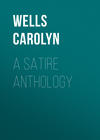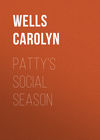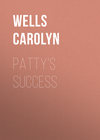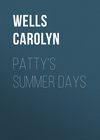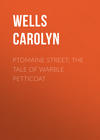Kitabı oku: «A Satire Anthology», sayfa 5
Yazı tipi:
THE COUNTRY SQUIRE
A COUNTRY squire, of greater wealth than wit
(For fools are often bless’d with fortune’s smile),
Had built a splendid house, and furnish’d it
In splendid style.
“One thing is wanted,” said a friend; “for, though
The rooms are fine, the furniture profuse,
You lack a library, dear sir, for show,
If not for use.”
“’Tis true; but, zounds!” replied the squire with glee,
“The lumber-room in yonder northern wing
(I wonder I ne’er thought of it) will be
The very thing.
“I’ll have it fitted up without delay
With shelves and presses of the newest mode.
And rarest wood, befitting every way
A squire’s abode.
“And when the whole is ready, I’ll despatch
My coachman – a most knowing fellow – down,
To buy me, by admeasurement, a batch
Of books in town.”
But ere the library was half supplied
With all its pomp of cabinet and shelf,
The booby squire repented him, and cried
Unto himself:
“This room is much more roomy than I thought;
Ten thousand volumes hardly would suffice
To fill it, and would cost, however bought,
A plaguy price.
“Now, as I only want them for their looks,
It might, on second thoughts, be just as good,
And cost me next to nothing, if the books
Were made of wood.
“It shall be so. I’ll give the shaven deal
A coat of paint – a colourable dress,
To look like calf or vellum, and conceal
Its nakedness.
And gilt and letter’d with the author’s name,
Whatever is most excellent and rare
Shall be, or seem to be (’tis all the same),
Assembled there.“
The work was done; the simulated hoards
Of wit and wisdom round the chamber stood.
In bindings some; and some, of course, in boards,
Were all of wood.
From bulky folios down to slender twelves,
The choicest tomes in many an even row,
Display’d their letter’d backs upon the shelves,
A goodly show.
With such a stock, which seemingly surpass’d
The best collection ever form’d in Spain,
What wonder if the owner grew at last
Supremely vain?
What wonder, as he paced from shelf to shelf,
And conn’d their titles, that the Squire began,
Despite his ignorance, to think himself
A learned man?
Let every amateur, who merely looks
To backs and bindings, take the hint, and sell
His costly library; for painted books
Would serve as well.
Tomas Yriarte.
THE EGGS
BEYOND the sunny Philippines
An island lies, whose name I do not know;
But that’s of little consequence, if so
You understand that there they had no hens,
Till, by a happy chance, a traveller,
After a while, carried some poultry there.
Fast they increased as anyone could wish,
Until fresh eggs became the common dish.
But all the natives ate them boiled, they say,
Because the stranger taught no other way.
At last th’ experiment by one was tried —
Sagacious man! – of having his eggs fried.
And oh, what boundless honours, for his pains,
His fruitful and inventive fancy gains!
Another, now, to have them baked devised —
Most happy thought! and still another, spiced.
Who ever thought eggs were so delicate!
Next, someone gave his friends an omelette:
“Ah!” all exclaimed, “what an ingenious feat!”
But scarce a year went by, an artist shouts,
“I have it now! ye’re all a pack of louts!
With nice tomatoes all my eggs are stewed.”
And the whole island thought the mode so good,
That they would so have cooked them to this day,
But that a stranger, wandering out that way,
Another dish the gaping natives taught,
And showed them eggs cooked à la Huguenot.
Successive cooks thus proved their skill diverse,
But how shall I be able to rehearse
All of the new, delicious condiments
That luxury from time to time invents?
Soft, hard, and dropped; and now with sugar sweet,
And now boiled up with milk, the eggs they eat;
In sherbet, in preserves; at last they tickle
Their palates fanciful with eggs in pickle.
All had their day – the last was still the best.
But a grave senior thus one day addressed
The epicures: “Boast, ninnies, if you will,
These countless prodigies of gastric skill,
But blessings on the man who brought the hens!”
Beyond the sunny Philippines
Our crowd of modern authors need not go
New-fangled modes of cooking eggs to show.
Tomas Yriarte.
THE LITERARY LADY
WHAT motley cares Corilla’s mind perplex,
Whom maids and metaphors conspire to vex!
In studious dishabille behold her sit,
A letter’d gossip and a household wit:
At once invoking, though for different views,
Her gods, her cook, her milliner, and muse.
Round her strew’d room a frippery chaos lies,
A checker’d wreck of notable and wise,
Bills, books, caps, couplets, combs, a varied mass,
Oppress the toilet and obscure the glass;
Unfinish’d here an epigram is laid,
And there a mantua-maker’s bill unpaid.
There new-born plays foretaste the town’s applause,
There dormant patterns pine for future gauze.
A moral essay now is all her care,
A satire next, and then a bill of fare.
A scene she now projects, and now a dish;
Here Act the First, and here Remove with Fish.
Now, while this eye in a fine frenzy rolls,
That soberly casts up a bill for coals;
Black pins and daggers in one leaf she sticks,
And tears, and threads, and bowls, and thimbles mix.
Richard Brinsley Sheridan.
SLY LAWYERS
LO, that small office! there th’ incautious guest
Goes blindfold in, and that maintains the rest;
There in his web th’ observant spider lies,
And peers about for fat, intruding flies;
Doubtful at first, he hears the distant hum,
And feels them flutt’ring as they nearer come;
They buzz and blink, and doubtfully they tread
On the strong birdlime of the utmost thread;
But when they’re once entangled by the gin,
With what an eager clasp he draws them in!
Nor shall they ’scape till after long delay,
And all that sweetens life is drawn away.
George Crabbe.
REPORTERS
FIRST, from each brother’s hoard a part they draw,
A mutual theft that never feared a law;
Whate’er they gain, to each man’s portion fall,
And read it once, you read it through them all.
For this their runners ramble day and night,
To drag each lurking deep to open light;
For daily bread the dirty trade they ply,
Coin their fresh tales, and live upon the lie.
Like bees for honey, forth for news they spring —
Industrious creatures! ever on the wing;
Home to their several cells they bear the store,
Culled of all kinds, then roam abroad for more.
George Crabbe.
ADDRESS TO THE UNCO GUID, OR THE RIGIDLY RIGHTEOUS
OH, ye wha are sae guid yoursel’,
Sae pious an’ sae holy,
Ye’ve nought to do but mark an’ tell
Your neibour’s fauts an’ folly!
Whase life is like a weel-gaun mill,
Supplied wi’ store o’ water,
The heapéd happer’s ebbing still,
An’ still the clap plays clatter.
Hear me, ye venerable core,
As counsel for poor mortals,
That frequent pass douce Wisdom’s door,
For glaiket Folly’s portals:
I, for their thoughtless, careless sakes,
Would here propone defences,
Their donsie tricks, their black mistakes,
Their failings an’ mischances.
Ye see your state wi’ theirs compar’d,
An’ shudder at the niffer,
But cast a moment’s fair regard,
What mak’s the mighty differ?
Discount what scant occasion gave,
That purity ye pride in,
An’ (what’s aft mair than a’ the lave)
Your better art o’ hiding.
Think, when your castigated pulse
Gi’es now an’ then a wallop,
What ragings must his veins convulse,
That still eternal gallop.
Wi’ wind an’ tide fair i’ your tail,
Right on ye scud your sea-way;
But in the teeth o’ baith to sail,
It makes an unco lee-way.
See social life an’ glee sit down,
All joyous an’ unthinking,
Till, quite transmugrified, they’re grown
Debauchery an’ drinking:
Oh, would they stay to calculate
Th’ eternal consequences;
Or your more dreaded hell to state,
Damnation of expenses!
Ye high, exalted, virtuous dames,
Tied up in godly laces,
Before ye gi’e poor frailty names,
Suppose a change o’ cases;
A dear loved lad, convenience snug,
A treacherous inclination —
But, let me whisper i’ your lug,
Ye’re aiblins nae temptation.
Then gently scan your brother man,
Still gentler sister woman;
Though they may gang a kennin’ wrang,
To step aside is human.
One point must still be greatly dark,
The moving why they do it;
An’ just as lamely can ye mark
How far, perhaps, they rue it
Who made the heart, ’tis He alone
Decidedly can try us;
He knows each chord – its various tone,
Each spring – its various bias;
Then at the balance let’s be mute —
We never can adjust it;
What’s done we partly may compute,
But know not what’s resisted.
Robert Burns.
HOLY WILLIE’S PRAYER
O THOU, wha in the heavens dost dwell,
Wha, as it pleases best Thysel,
Sends ane to heaven an’ ten to hell,
A’ for Thy glory,
And no for ony guid or ill
They’ve done before Thee!
I bless and praise Thy matchless might,
When thousands Thou hast left in night,
That I am here, before Thy sight,
For gifts an’ grace,
A burnin’ an’ a shinin’ light
To a’ this place.
What was I, or my generation,
That I should get sic exaltation!
I, wha deserv’d most just damnation,
For broken laws
Sax thousand years ere my creation,
Thro’ Adam’s cause.
When frae my mither’s womb I fell,
Thou might hae plung’d me deep in hell,
To gnash my gooms, to weep and wail
In burnin’ lakes,
Whare damnéd devils roar and yell,
Chain’d to their stakes.
Yet I am here, a chosen sample,
To show Thy grace is great and ample;
I’m here a pillar o’ Thy temple,
Strong as a rock,
A guide, a buckler, an example
To a’ Thy flock!
But yet, O Lord! confess I must,
At times I’m fash’d wi’ fleshly lust;
An’ sometimes, too, wi’ warldly trust,
Vile self gets in;
But Thou remembers we are dust,
Defil’d wi’ sin.
May be Thou lets this fleshly thorn
Beset Thy servant e’en and morn,
Lest he owre proud and high should turn
That he’s sae gifted:
If sae, Thy han’ maun e’en be borne
Until Thou lift it.
Lord, bless Thy chosen in this place,
For here Thou hast a chosen race:
But God confound their stubborn face,
An’ blast their name,
Wha bring Thy elders to disgrace
An’ open shame!
Lord, mind Gawn Hamilton’s deserts;
He drinks, an’ swears, an’ plays at carts,
Yet has sae mony takin’ arts,
Wi’ great and sma’,
Frae God’s ain priests the people’s hearts
He steals awa.
An’ when we chasten’d him therefor,
Thou kens how he bred sic a splore,
As set the warld in a roar
O’ laughin’ at us;
Curse Thou his basket and his store,
Kail an’ potatoes!
Lord, hear my earnest cry and pray’r
Against the Presbyt’ry of Ayr!
Thy strong right hand, Lord, mak it bare
Upo’ their heads!
Lord, visit them, an’ dinna spare,
For their misdeeds!
O Lord, my God! that glib-tongu’d Aiken,
My vera heart and saul are quakin’,
To think how we stood sweatin’, shakin’,
An’ pish’d wi’ dread,
While he wi’ hingin’ lip an’ snakin,
Held up his head.
Lord, in Thy day o’ vengeance try him!
Lord, visit them wha did employ him,
And pass not in Thy mercy by them,
Nor hear their pray’r;
But for Thy people’s sake destroy them,
An’ dinna spare!
But, Lord, remember me and mine,
Wi’ mercies temp’ral and divine,
That I for grace and gear may shine,
Excell’d by nane,
An’ a’ the glory shall be Thine,
Amen, Amen!
Robert Burns.
KITTY OF COLERAINE
As beautiful Kitty one morning was tripping,
With a pitcher of milk from the fair of Coleraine,
When she saw me she stumbled, the pitcher down tumbled,
And all the sweet buttermilk watered the plain.
“Oh, what shall I do now? ’twas looking at you, now!
Sure, sure, such a pitcher I’ll ne’er meet again;
’Twas the pride of my dairy! O Barney M’Cleary,
You’re sent as a plague to the girls of Coleraine!”
I sat down beside her, and gently did chide her
That such a misfortune should give her such pain;
A kiss then I gave her, and, ere I did leave her,
She vowed for such pleasure she’d break it again.
’Twas hay-making season – I can’t tell the reason —
Misfortunes will never come single, ’tis plain;
For very soon after poor Kitty’s disaster
The devil a pitcher was whole in Coleraine.
Edward Lysaght.
THE FRIEND OF HUMANITY AND THE KNIFE-GRINDER
FRIEND OF HUMANITY
“NEEDY Knife-grinder, whither are you going?
Rough is the road, your wheel is out of order;
Bleak blows the blast; your hat has got a hole in’t,
So have your breeches!
“Weary Knife-grinder, little think the proud ones,
Who in their coaches roll along the turnpike
Road, what hard work ’tis crying all day, ‘Knives and
Scissors to grind O!’
“Tell me, Knife-grinder, how came you to grind knives?
Did some rich man tyrannically use you?
Was it the squire? or parson of the parish?
Or the attorney?
“Was it the squire, for killing of his game? or
Covetous parson, for his tithes distraining?
Or roguish lawyer, made you lose your little
All in a lawsuit?
“(Have you not read the ‘Rights of Man,’ by Tom Paine?)
Drops of compassion tremble on my eyelids,
Ready to fall, as soon as you have told your
Pitiful story.”
KNIFE-GRINDER
“Story! God bless you! I have none to tell, sir,
Only last night, a-drinking at the Chequers,
This poor old hat and breeches, as you see, were
Torn in a scuffle.
“Constables came up, for to take me into
Custody; they took me before the justice;
Justice Oldmixon put me in the parish —
Stocks for a vagrant.
“I should be glad to drink your Honour’s health in
A pot of beer, if you will give me sixpence;
But for my part, I never love to meddle
With politics, sir.”
FRIEND OF HUMANITY
“I give thee sixpence! I will see thee damned first —
Wretch! whom no sense of wrongs can rouse to vengeance —
Sordid, unfeeling, reprobate, degraded,
Spiritless outcast!”
(Kicks the Knife-grinder, overturns his wheel, and exit in a transport of Republican enthusiasm and universal philanthropy.)
George Canning.
NORA’S VOW
HEAR what Highland Nora said:
“The Earlie’s son I will not wed,
Should all the race of Nature die,
And none be left but he and I.
For all the gold, for all the gear,
And all the lands both far and near,
That ever valour lost and won,
I would not wed the Earlie’s son.”
“A maiden’s vows,” old Callum spoke,
“Are lightly made and lightly broke.
The heather on the mountain’s height
Begins to bloom in purple light;
The frost-wind soon shall sweep away
That lustre deep from glen and brae;
Yet Nora, ere its bloom be gone,
May blithely wed the Earlie’s son.”
“The swan,” she said, “the lake’s clear breast
May barter for the eagle’s nest;
The Awe’s fierce stream may backward turn,
Ben Cruaichan fall, and crush Kilchurn;
Our kilted clans, when blood is high,
Before their foes may turn and fly;
But I, were all these marvels done,
Would never wed the Earlie’s son.”
Still in the water-lily’s shade
Her wonted nest the wild swan made,
Ben Cruaichan stands as fast as ever,
Still downward foams the Awe’s fierce river;
To shun the clash of foeman’s steel,
No Highland brogue has turn’d the heel;
But Nora’s heart is lost and won —
She’s wedded to the Earlie’s son!
Sir Walter Scott.
JOB
SLY Beelzebub took all occasions
To try Job’s constancy and patience.
He took his honour, took his health;
He took his children, took his wealth,
His servants, horses, oxen, cows —
But cunning Satan did not take his spouse.
But Heaven, that brings out good from evil,
And loves to disappoint the devil,
Had predetermined to restore
Twofold all he had before;
His servants, horses, oxen, cows —
Short-sighted devil, not to take his spouse!
Samuel T. Coleridge.
COLOGNE
IN Köln, a town of monks and bones,
And pavements fanged with murderous stones,
And rags, and hags, and hideous wenches,
I counted two-and-seventy stenches,
All well defined, and separate stinks!
Ye nymphs that reign o’er sewers and sinks,
The river Rhine, it is well known,
Doth wash your city of Cologne;
But tell me, nymphs, what power divine
Shall henceforth wash the river Rhine?
Samuel T. Coleridge.
GILES’ HOPE
“WHAT! rise again with all one’s bones?”
Quoth Giles. “I hope you fib.
I trusted, when I went to heaven,
To go without my rib.”
Samuel T. Coleridge.
THE BATTLE OF BLENHEIM
IT was a summer’s evening;
Old Casper’s work was done,
And he before his cottage-door
Was sitting in the sun;
And by him sported on the green
His little grandchild Wilhelmine.
She saw her brother Peterkin
Roll something large and round,
That he beside the rivulet
In playing there had found.
He came to ask what he had found,
That was so large, and smooth, and round.
Old Casper took it from the boy,
Who stood expectant by;
And then the old man shook his head,
And with a natural sigh,
“’Tis some poor fellow’s skull,” said he,
“Who fell in the great victory.
“I find them in the garden, for
There’s many here about;
And often, when I go to plough,
The ploughshare turns them out;
For many thousand men,” said he,
“Were slain in the great victory.”
“Now tell us what ’twas all about,”
Young Peterkin he cries;
And little Wilhelmine looks up,
With wonder-waiting eyes:
“Now tell us all about the war,
And what they kill’d each other for.”
“It was the English,” Casper cried,
“That put the French to rout;
But what they kill’d each other for,
I could not well make out;
But everybody said,” quoth he,
“That ’twas a famous victory.
“My father lived at Blenheim then,
Yon little stream hard by;
They burnt his dwelling to the ground,
And he was forced to fly;
So with his wife and child he fled,
Nor had he where to rest his head.
“With fire and sword the country round
Was wasted far and wide,
And many a childing mother then
And new-born infant died.
But things like that, you know, must be
At every famous victory.
“They say it was a shocking sight,
After the field was won,
For many a thousand bodies here
Lay rotting in the sun.
But things like that, you know, must be
After a famous victory.
“Great praise the Duke of Marlbro’ won,
And our good Prince Eugene.”
“Why, ’twas a very wicked thing!”
Said little Wilhelmine.
“Nay, nay, my little girl,” quoth he,
“It was a famous victory;
“And everybody praised the duke,
Who such a fight did win.”
“But what good came of it at last?”
Quoth little Peterkin.
“Why, that I cannot tell,” said he;
“But ’twas a famous victory.”
Robert Southey.
THE WELL OF ST. KEYNE
A WELL there is in the west country,
And a clearer one never was seen;
There is not a wife in the west country
But has heard of the Well of St. Keyne.
An oak and an elm-tree stand beside,
And behind doth an ash-tree grow,
And a willow from the bank above
Droops to the water below.
A traveller came to the Well of St. Keyne,
Joyfully he drew nigh,
For from cock-crow he had been travelling,
And there was not a cloud in the sky.
He drank of the water so cool and clear,
For thirsty and hot was he;
And he sat down upon the bank
Under the willow-tree.
There came a man from the house hard by,
At the well to fill his pail;
On the well-side he rested it,
And he bade the stranger hail.
“Now art thou a bachelor, stranger?” quoth he,
“For an’ if thou has a wife,
The happiest draught thou hast drank this day
That ever thou didst in thy life.
“Or has thy good woman, if one thou hast,
Ever here in Cornwall been?
For an’ if she have, I’ll venture my life
She has drank of the Well of St. Keyne.”
“I have left a good woman who never was here,”
The stranger he made reply;
“But that my draught should be better for that,
I pray you answer me why?”
“St. Keyne,” quoth the Cornishman, “many a time
Drank of this crystal well,
And before the angels summon’d her,
She laid on the water a spell.
“If the husband of this gifted well
Shall drink before his wife,
A happy man henceforth is he,
For he shall be master for life.
“But if the wife should drink of it first,
God help the husband then!”
The stranger stooped to the Well of St. Keyne,
And drank of the water again.
“You drank of the well, I warrant, betimes?”
He to the Cornishman said;
But the Cornishman smiled as the stranger spake,
And sheepishly shook his head.
“I hasten’d as soon as the wedding was done,
And left my wife in the porch;
But i’ faith she had been wiser than me,
For she took a bottle to church.”
Robert Southey.
THE POET OF FASHION
HIS book is successful, he’s steeped in renown,
His lyric effusions have tickled the town;
Dukes, dowagers, dandies, are eager to trace
The fountain of verse in the verse-maker’s face;
While, proud as Apollo, with peers tête-à-tête,
From Monday till Saturday dining off plate,
His heart full of hope, and his head full of gain,
The Poet of Fashion dines out in Park Lane.
Now lean-jointured widows who seldom draw corks,
Whose teaspoons do duty for knives and for forks,
Send forth, vellum-covered, a six-o’clock card,
And get up a dinner to peep at the bard;
Veal, sweetbread, boiled chickens, and tongue crown the cloth,
And soup à la reine, little better than broth.
While, past his meridian, but still with some heat,
The Poet of Fashion dines out in Sloane Street.
Enrolled in the tribe who subsist by their wits,
Remember’d by starts, and forgotten by fits,
Now artists and actors, the bardling engage,
To squib in the journals, and write for the stage.
Now soup à la reine bends the knee to ox-cheek,
And chickens and tongue bow to bubble and squeak.
While, still in translation employ’d by “the Row,”
The Poet of Fashion dines out in Soho.
Pushed down from Parnassus to Phlegethon’s brink,
Toss’d, torn, and trunk-lining, but still with some ink,
Now squat city misses their albums expand,
And woo the worn rhymer for “something offhand”;
No longer with stinted effrontery fraught,
Bucklersbury now seeks what St. James’ once sought,
And (oh, what a classical haunt for a bard!)
The Poet of Fashion dines out in Barge-yard.
James Smith.
Türler ve etiketler
Yaş sınırı:
12+Litres'teki yayın tarihi:
28 ekim 2017Hacim:
230 s. 1 illüstrasyonTelif hakkı:
Public Domain